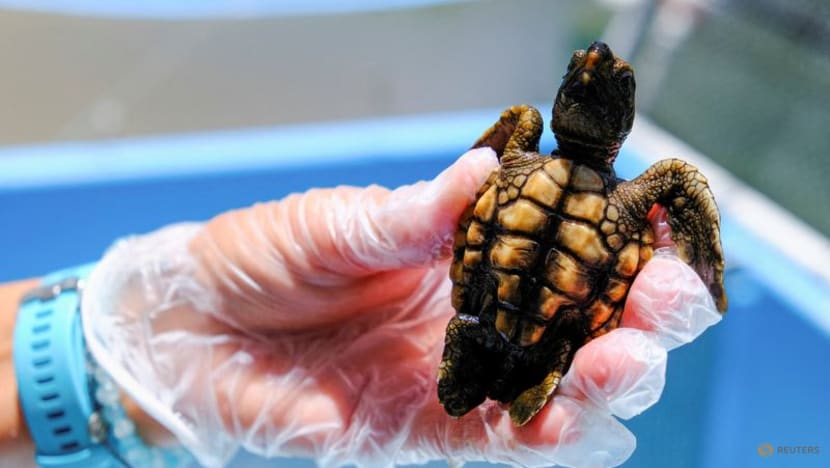Warmer weather can cause more turtles to be born female than male while cooler weather favors male babies researchers have found that the egg temperature determines the unhatched turtle s gender

Warmer Weather and Turtles: The Connection to Gender Ratio

Introduction
Turtles, these fascinating creatures that have roamed our planet for millions of years, have an interesting reproductive trait that is influenced by the temperature of their eggs. Researchers have discovered that warmer weather can cause a shift in the gender ratio of turtle hatchlings, favoring the birth of more female turtles. Conversely, cooler weather tends to result in a higher population of male baby turtles. This discovery has raised concerns among scientists, as it adds a new dimension to the challenges faced by these ancient species in a warming climate.
The Impact of Egg Temperature

The determination of a turtle’s gender begins even before it hatches from its egg. Researchers have found that the temperature at which the eggs incubate plays a crucial role in determining the sex of the unhatched turtles. The specific temperature range at which balanced ratios of male and female turtles are produced is known as the “pivotal temperature.” However, slight deviations from this range can significantly skew the gender ratio.
The Effect of Warmer Weather
As global temperatures continue to rise, the impact on turtle populations becomes increasingly apparent. The phenomenon of warmer weather resulting in more female turtle hatchlings has been observed in various turtle species across the globe. Studies have shown that for some turtle species, even a modest increase in temperature can lead to a significant shift in the gender ratio, with more females being born.
How Does Temperature Affect Gender Determination?
The connection between temperature and gender determination lies in a process called temperature-dependent sex determination (TSD). In turtles, TSD occurs during a specific window of time when the embryos are highly sensitive to temperature. When the eggs are incubated within the pivotal temperature range, the embryos have an equal chance of developing into either male or female turtles. However, if the temperature falls below or rises above this range, the sex determination process is affected, leading to a skewed gender ratio.
Implications for Turtle Populations
The gender imbalance caused by warmer temperatures has profound implications for turtle populations. In some areas, the skewed gender ratios resulting from climate change have raised concerns about the long-term survival of certain turtle species. As the number of males decreases, the pool of potential mates for females diminishes, which can lead to lower reproductive success and genetic diversity.
Conservation Efforts in the Face of Climate Change
Recognizing the urgency to address this issue, scientists and conservation organizations have been working diligently to protect turtle populations and their habitats. Efforts range from the establishment of protected areas to the implementation of strategies to mitigate the impacts of climate change. These initiatives aim to ensure the preservation of balanced gender ratios and the long-term survival of turtle species.
Conclusion
In conclusion, research has shown that warmer weather can have a significant impact on the gender ratio of turtle hatchlings. The temperature at which turtle eggs incubate plays a critical role in determining the sex of the unhatched turtles. As global temperatures continue to rise, the skewed gender ratios caused by climate change present challenges for the survival and reproduction of turtle populations. However, through dedicated conservation efforts and the implementation of strategies to address climate change, there is hope for the continued existence of these remarkable creatures.
Related Posts
Quick Links
Legal Stuff

